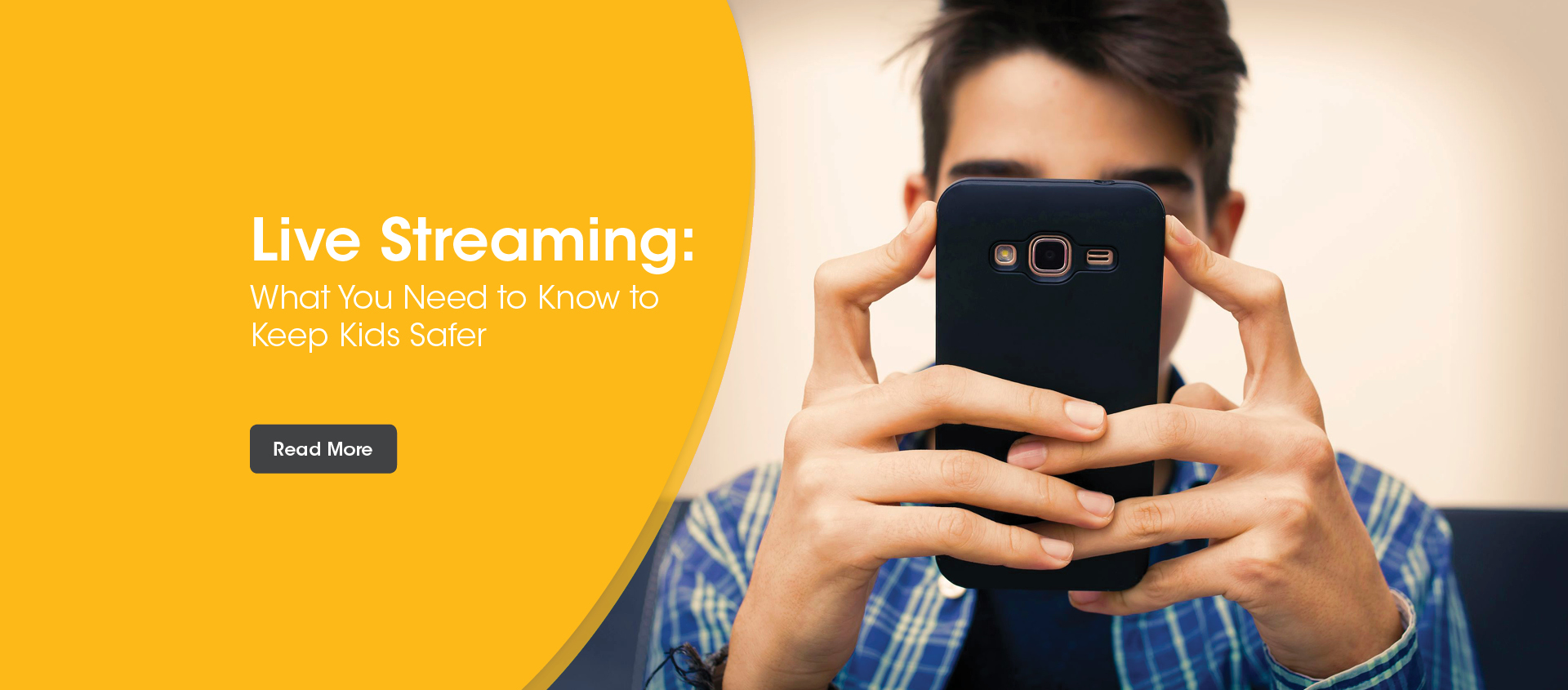Live Streaming: What You Need to Know to Keep Kids Safer
Live streaming is now available on almost every popular social media platform with the click of a button. Therefore, if your child has a communication device, they likely have a device capable of livestreaming. Livestreaming has become a phenomenon on social media allowing children to communicate via video stream in real time with the world, including those who may wish them harm.
Aside from being a popular way to communicate in the online world with their peers, children frequently livestream in order to create online content to make people laugh, obtain followers and engage in the online community. However, this seemingly innocent and curious behavior inherent to children’s social development can have serious, life-altering risks.
At NCMEC, we see negative consequences of children live streaming every day. Our CyberTipline is the nation’s centralized reporting system for the online exploitation of children. Within these CyberTipline reports, we see children victimized in numerous ways. Your child’s presence on a livestreaming platform means they are now exposed to millions of people at the touch of a button, including individuals who wish to harm children. These ill-intentioned individuals are aware of the unique vulnerability of children online and often entice children to undress, expose themselves on camera, engage in sexual activity independently and with others (i.e. siblings, friends, pets) and engage in self-harming behaviors.
Just because you are home, or in the same room, does not mean your child is less vulnerable to harmful individuals online. Many of the live streaming videos we see do not depict a child verbally speaking to these individuals, yet they’re still being victimized. We see children reading comments from viewers instructing them to engage in sexual or self-harming behaviors. We also oftentimes see children responding to viewers by divulging personal information including where they go to school, their phone number and even their home address—which poses a risk to the entire family.
Here at NCMEC, all reports of child sexual exploitation received by the CyberTipline are made available to law enforcement. This means law enforcement could become seriously involved if your child is victimized or engaging in this type of behavior online.
Bottom line: The internet should be a fun and safe environment for children, however, it also puts children in an extremely vulnerable position to harmful individuals “hidden” behind a screen. Help keep children safer by knowing what technology and apps your child is using. Be sure to discuss appropriate behaviors online and dangers as they pertain to the online world. Create rules in your household that prohibit the use of technology behind closed doors, to include bedrooms and the bathroom. Be aware, be present and have ongoing conversations with your child about their online and real-world activities.
If you suspect a child is being exploited online, report it to the CyberTipline, and learn more about online safety at Missingkids.org/NetSmartz. There you'll find informational articles, tip sheets, videos, and other resources to inform yourself and teach children to be safer.
